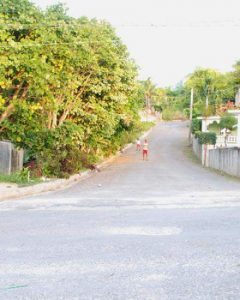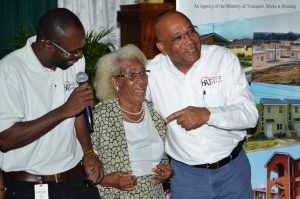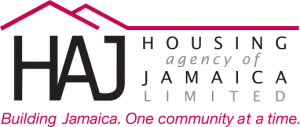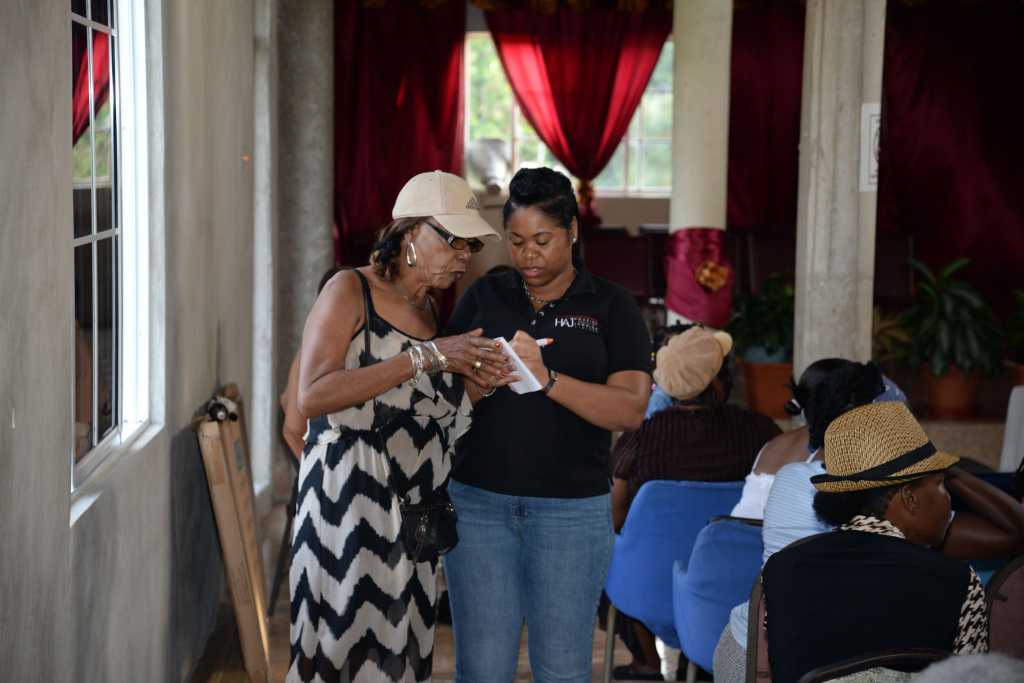In Jamaica immediately after the abolition of slavery in 1838 the newly-freed enslaved people were forced to capture Crown lands and marginal lands outside the plantations as an economic necessity, having received no compensation with freedom. The practice of land capture has persisted to the present day as a response to landlessness.
 The solution to the problem of squatting lies in making land available and affordable to the landless, as members of viable communities, with everyone having security of tenure. With this understanding Operation P.R.I.D.E. (Programme for Resettlement and Integrated Development Enterprise) was launched in 1994 by Prime Minister P.J. Patterson with objectives to:
The solution to the problem of squatting lies in making land available and affordable to the landless, as members of viable communities, with everyone having security of tenure. With this understanding Operation P.R.I.D.E. (Programme for Resettlement and Integrated Development Enterprise) was launched in 1994 by Prime Minister P.J. Patterson with objectives to:
- Resolve the shelter needs of the majority of low-income Jamaicans by new planned settlements and the upgrading of existing settlements;
- Improve environmental and public health conditions in settlements throughout the country;
- Mobilize resources in the informal sector towards their own improvement, employment creation and national development.
Operation PRIDE was therefore a unique method of making land legally accessible to low-income groups at affordable prices through government subsidies. This approach envisioned incremental development of settlements. The necessity arose given the high cost of housing solutions in the formal sector, unaffordable to the poor; the limited available capital for housing and the inability of the majority who, without credit was unable to access mortgages.
In assessing the impact of PRIDE throughout the 1990s the following became clear:
- The expectations of beneficiaries far exceeded what the programme could deliver.
- Cost overruns and delays led to billions of dollars in losses
- Partiality in the choice of sites and the selection of beneficiaries undermined the programme’s credibility
- The Provident Societies which were formed to represent the interest of beneficiaries lacked capacity
- Corruption and nepotism further eroded the legitimacy of the programme.
To address these challenges, in 1998 PRIDE was merged with the Caribbean Housing Finance Corporation and the National Housing Corporation to form the National Housing Development Corporation but the problems persisted. In 2002 the government-appointed Angus Commission of Inquiry Report revealed that the NHDC:
- Frequently used incomplete or inadequate designs to undertake projects
- Made little effort to obtain the requisite approvals from the regulatory authorities
- Failed to ensure that loan agreements were implemented prior to advances being made
The Commission recommended that external Ministerial interference cease, no construction proceed without approved designs, market demand surveys and regulatory approvals, and no advances be made without properly executed loan agreements.
Housing Agency of Jamaica Limited & the Challenge of Regularizing Informal Communities
As the NHDC was unable to escape the burden of a damaged reputation built up over the years, the decision was made to abolish the Corporation and replace it with the new Housing Agency of Jamaica Limited, which was launched in 2008. The HAJ was established to be the development arm of the Housing Ministry in regularizing informal settlements and undertaking low-income greenfield developments.
While building several new greenfield schemes, the Agency has also been gradually completing construction of infrastructure in unfinished informal projects started years previously, and collecting outstanding payments from residents to qualify them for receipt of their land titles.
Over the past almost ten years of its existence some 8,000 titles have been transferred to beneficiaries, and another 8,000 are in the vaults of HAJ to be put in the hands of residents once they complete payment.
The Housing Agency is facing the challenge of securing resources to provide roads & drainage, electricity, potable water and sewage disposal systems for a multitude of informal settlements, while collecting payments for these lots at subsidized prices, from residents who often resist compliance.
The Agency has been making sustained efforts to educate residents of these communities on the benefits of obtaining title – from realizing house values, assisting in children’s education, and home improvement to the stability of legal home ownership and fostering civic pride – through regular Title Forums and Title Presentation Ceremonies.
the stability of legal home ownership and fostering civic pride – through regular Title Forums and Title Presentation Ceremonies.
Housing Agency will continue to facilitate regularization of the approximately 100 PRIDE sites islandwide, as the sole government agency with a mandate to transform these settlements into formal communities with residents having security of tenure.



